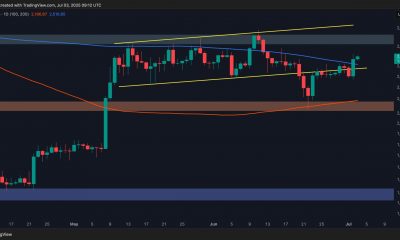Commodities
Russia and India will switch to a new oil trade business model

India keeps buying Russian oil in large quantities and carries on the oil trade business. However, it seems that by the end of the year it will have to adapt to the new trading system – through small independent traders, which will save Indian business from the pressure of the U.S. and the EU.
The probability that India will expand the channels to import Russian oil by involving small foreign traders in the process is quite high. Firstly, Indian companies will not have to wait for approval of long-term contracts with Russian suppliers. Secondly, India will be able to remove its own large companies from possible pressure.
Russia will win in any case, because there will be a steady buyer for its oil, and the absence of economic stiffness with Western sanctions will make it possible to increase exports. Now the oil trade chart is extremely unstable, so it is important for traders to keep abreast of all developments.
What oil trade brokers need to know: the time for small traders is coming
The Economic Times recently reported that India’s biggest oil refiners are considering involving small foreign firms in supplying discounted oil from Russia which “was abandoned by the Western importers”. At the moment in the turnover of Russian hydrocarbons are involved such new players as Wellbred, Manfort Capital Energy, and others, who filled the niche of suppliers after the departure of big traders. The edition stressed that Indian oil refiners are ready to take risks, as the new companies guarantee cheap raw material supplies to India.
India could switch to working with small traders to cover current needs. If we are talking about long-term contracts, then it is more reliable for the state to enter into an agreement with a supplier directly. But there is a probability that Russian oil producers do not currently have free volumes to guarantee their delivery to the Indian market. Therefore, it is easier for India to buy individual batches with the help of traders. Now is not the best time for crude oil trading, so market participants have to take such steps.
When Indian companies started to actively buy crude oil in Russia and make new contracts with Russian companies, they started to come under pressure. The U.S. indirectly urged the Indian government not to let Russia bypass sanctions. Although U.S. rhetoric has changed somewhat recently, the risks for large Indian businesses remain.
Crude oil trade today: Buying volumes may even rise
It makes sense for both Russia and India to look for options for crude oil trade today that would be safer than the usual models involving using dollar financial infrastructure and its variations. Western insurers, freight and so on.
There are large companies in India that are under the scrutiny of the Western public, the media. It is better for these big players to step back somewhat so that all transactions with Russia are handled by second-tier companies. The same thing is happening in China: there are first-tier companies; they want to stay in the market of Western countries. But there is a mass of companies, maybe even related to the first-tier business, that actively interact with Russia.
The transition to trading through small traders may require adaptation, but on the whole, this scheme is working. This is confirmed by the growth in oil supplies from Russia to India to almost one million barrels per day.
Depending on what happens next, India may also increase its oil purchases. Compared to the June peaks, supply has slightly decreased. There will be a lot of Russian oil on the Indian market, and the new trading mechanisms will soon replace the old ones. At the same time, the U.S. will no longer be able to influence the mentioned second-tier companies from India.
Commodities
Oil prices rise; U.S. crude inventories plunge, Russia-Ukraine truce eyed
Commodities
India’s Reliance to stop buying Venezuelan oil over US tariffs, sources say
Commodities
Oil prices climb on Venezuela supply worries

 Forex3 years ago
Forex3 years agoForex Today: the dollar is gaining strength amid gloomy sentiment at the start of the Fed’s week

 Forex3 years ago
Forex3 years agoUnbiased review of Pocket Option broker

 Forex3 years ago
Forex3 years agoDollar to pound sterling exchange rate today: Pound plummeted to its lowest since 1985

 Forex3 years ago
Forex3 years agoHow is the Australian dollar doing today?

 Cryptocurrency3 years ago
Cryptocurrency3 years agoWhat happened in the crypto market – current events today

 World3 years ago
World3 years agoWhy are modern video games an art form?

 Commodities3 years ago
Commodities3 years agoCopper continues to fall in price on expectations of lower demand in China

 Economy3 years ago
Economy3 years agoCrude oil tankers double in price due to EU anti-Russian sanctions































